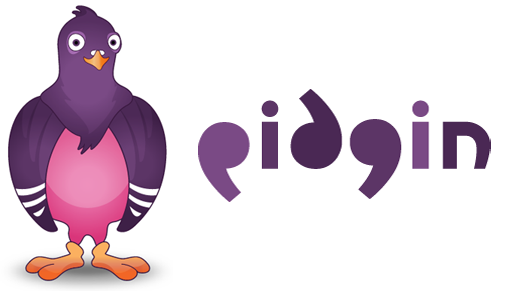Summary
Pidgin is an instant message (online chat) client that works with many different protocols simultaneously, which eliminates the need to run multiple proprietary clients. What this means in practical terms is that a Pidgin user can seamlessly exchange instant messages with others who use the AOL, Microsoft, Yahoo!, or Apple chat clients (as well as many others). Proprietary instant messaging systems are materially invested in their own protocols and clients. This tends to discourage interoperability with alternative systems. Multiprotocol instant message clients such as Pidgin are not inherently associated with any individual system, and so they are free to consolidate multiple protocols and features into one application. Although there are proprietary multiprotocol instant message clients, such as Trillian, Pidgin's open-source development paradigm means that not only is it available without cost, but its code is freely accessible and extensible, and it has an active developer network.
Pidgin's interface is somewhat minimal compared with many proprietary chat clients. Users identify each other through handles and visual avatars, and the respective protocols they use are largely invisible. A tabbed interface allows the user to manage multiple simultaneous chats in a single window, and application preferences are managed through a similar tabbed interface. Conversation logs can be created manually, or the application can archive chats automatically. Most features that are supported by particular protocols, such as file transfers and group chats, are also supported by Pidgin. In addition, third-party plugins grant Pidgin a range of abilities from blocking spam messages to securing conversations with RSA encryption.
Academic Uses
Pidgin's academic utility falls into two main categories: teaching and research. Pidgin's role in both of these areas is to facilitate communication and administrative record keeping. It is also important to note that Pidgin's ability to run in a portable version from a USB flash drive means that it can be used in shared computer labs that do not allow software installation—a feature that is undoubtedly welcome on university campuses.
For educational use, Pidgin's most effective deployment would be in courses that do not use an online Course Management System with live chat capability. This is because Pidgin provides a useful way to interact with students primarily outside of the classroom setting. For example, Pidgin would be useful in the service of online office hours. An instructor could launch Pidgin during designated office hour times, and because it handles multiple protocols, students would be able to contact him or her using their current instant message clients. This would prevent students from having to install additional software or sign up for a new account. Instructors could interact with multiple students simultaneously through the use of tabbed conversations, and also preserve searchable text archives of discussions with Pidgin's ability to record chat logs. An instructor could even have group chats with multiple student participants or disseminate material through file transfers, depending upon a student's particular instant message protocol.
Pidgin might also be deployed to students to facilitate communication outside of the classroom—for example, during group work activities. Students could use existing instant message accounts with Pidgin, but those without accounts would be required to register with a instant message service. Pidgin does not run its own instant message system; its purpose is to enable communication through the numerous existing chat protocols.
A multiprotocol chat client such as Pidgin also can be a very effective tool in the context of academic research. Like email, instant messaging can collapse the geographical separation between colleagues or researchers and interviewees. Using a multiprotocol client such as Pidgin helps instant messaging function as seamlessly as email, because a user need not be concerned with different protocols. Many of the same features that make Pidgin useful in education, such as file transfers and group chats, also make it suitable for broader scholarly collaboration. Optional plugins that provide RSA encryption additionally ensure that conversations are secure when dealing with sensitive research data.
Features
- Cross platform
- Works with AIM, Google Talk, ICQ, IRC, MSN, and Yahoo! instant message protocols, as well as many others
- Tabbed interface allows for multiple simultaneous conversations
- Optional auto-generated logs preserve searchable records of conversations
- Common features such as file transfers, group chats, avatars, and customizable status messages are supported (dependent upon protocol)
- Broad expandability through third-party plugins
- Active developer community
- Lighter resource use than many proprietary clients
- More simplified user interface than many proprietary clients
- Optional secure conversation encryption (through plugins)
- Optional portable version that may be run from a USB flash drive
Limitations
- No voice or video chat
- Abundance of options and plugins may be intimidating to the novice user
- User interface is not strictly consistent across platforms, and may not be optimized for a particular platform




